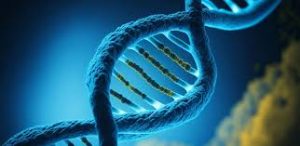Biomarkers:

Screening for blood biomarkers has been proposed as a potential way to diagnose cancer at earlier stages of the disease.
- Biological Markers’ are a physical, chemical or biological characteristic that is present in the human body and measurable too.
- The WHO defines a biomarker as “any measurement reflecting an interaction between a biological system and a potential hazard, which may be chemical, physical or biological.
- The measured response may be functional and physiological, biochemical at the cellular level or a molecular interaction”.
- Experts also call them molecular markers and signature molecules.
- They are indispensable in diagnosing disease, prescribing the right medication, right dosage, and even while designing new drugs.
- Biomarkers include biomolecules like carbohydrates, proteins, lipids, genes, DNA, RNA, platelets, enzymes, hormones, etc.
- Classification of Biomarkers:
- Molecular– have biophysical properties, which allow their measurements in biological samples such as blood plasma, serum, cerebrospinal fluid, bronchoalveolar lavage, biopsy, urinalysis, and faecal analysis
- Radiographic– obtained from imaging studies, for example, bone mineral density
- Histologic– reflect biochemical or molecular alteration in cells, tissues, or fluids; for example, the staging and grading of cancers
- Physiologic– measures of body processes, for example, blood pressure, pulse rate, and heart rate




